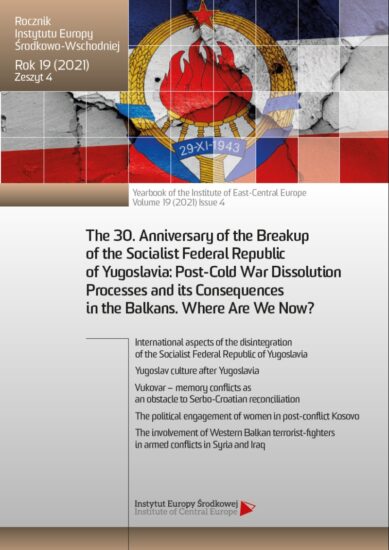Conditions and prospects for cooperation between Polish and Ukrainian local governments
Conditions and prospects for cooperation between Polish and Ukrainian local governments
Author(s): Mariusz Wiktor SienkiewiczSubject(s): Diplomatic history, Political history, Recent History (1900 till today), Government/Political systems, International relations/trade, EU-Approach / EU-Accession / EU-Development
Published by: Instytut Europy Środkowej
Keywords: local government cooperation; local government; cross-border cooperation; partnership; good-neighborliness;
Summary/Abstract: The fact that Poland and Ukraine share a border, the convergence of the political goals of the peoples of both countries, and the constant efforts towards the development of democracy and decentralisation of public life determine the need to intensify cooperation in various areas of the functioning of society and the economy. An important sphere of cooperation is the public sector, in particular at the level of local government. The local government cooperation of both countries was already visible at the beginning of the social and political transformations after 1990. The development of this cooperation, with varying results, took place in the 1990s and, to an even greater extent, after Poland’s accession to the European Union. In the last three decades, local and regional communities in Ukraine have become an important partner for Polish local governments, both at the local and regional levels. The local government cooperation that has been implemented is based on the diversification and multidimensionality of forms and models. Some result from legal regulations, while others are based on mutual experiences, previous contacts, and sympathies of public authorities. The aim of the study is to analyse and present the conditions and forms of Polish-Ukrainian local government cooperation. The aim is also to show the barriers to cooperation and to define proposed solutions to improve partner contacts of territorial units. The local government cooperation of the two countries is undoubtedly hindered by the fact that Ukraine is not a member of the EU, and often by mutual misunderstanding and non-acceptance of historical experiences. On the other hand, common goals at different levels of social, public, and economic life are a significant factor motivating parties to increase cooperation and achieve a synergistic effect thanks to it.
Journal: Rocznik Instytutu Europy Środkowo-Wschodniej
- Issue Year: 19/2021
- Issue No: 4
- Page Range: 221-241
- Page Count: 21
- Language: English

